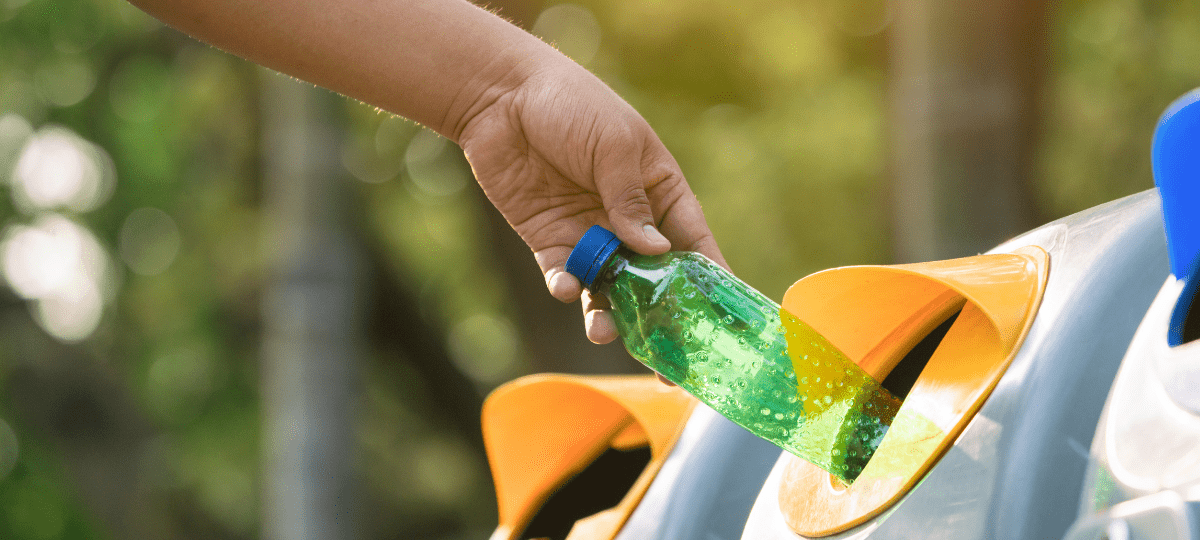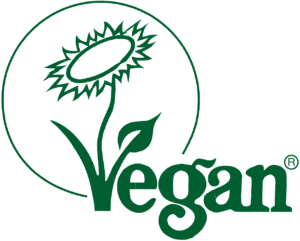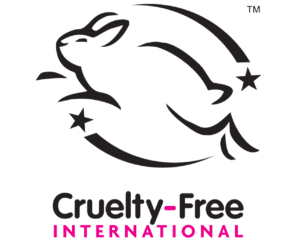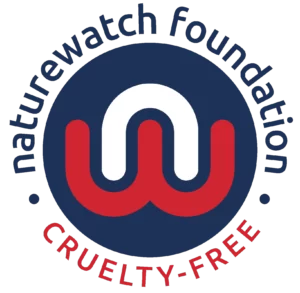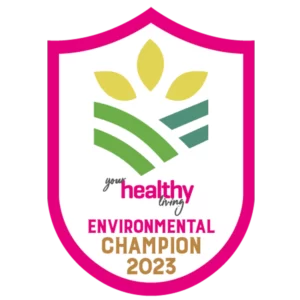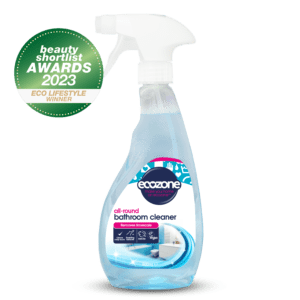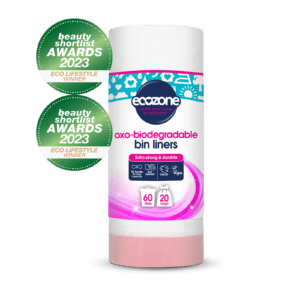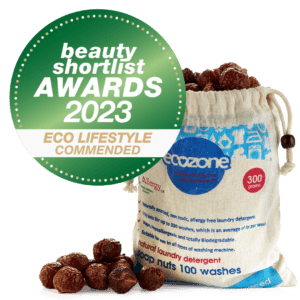Plastic recycling can be confusing. We all try our best to recycle plastic correctly, but with confusing symbols, rules that differ from council to council, and conflicting views on what plastic we can recycle, it becomes a perplexing task.
Plastic recycling facts
You probably already know that not all plastic is recyclable… Read on to find out more about what types of plastics can and cannot be recycled, and how to identify different types of plastic. Did you know:
- Recycling plastic downgrades its quality each time. Each time plastic is recycled, the quality of the final product decreases as the plastic becomes weaker and more brittle. This means that the same piece of plastic can only be recycled about 2-3 times before it can no longer be used
- Black plastic cannot be recycled because of the infra-red light that is used to detect plastics in the recycling system; the black dye means this plastic can’t be detected
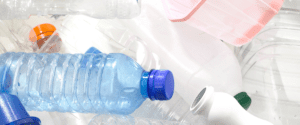
Different types of plastic
It’s important to understand the different types of plastic, and what they mean when it comes to recycling.
All plastics can be categorised into two categories:
Thermoset plastics:
These are plastics that strengthens when heated, meaning it cannot be remoulded or heated after its initial forming. This is what makes thermoset plastics impossible to recycle.
Thermoplastics:
Unlike thermoset plastics, thermoplastics can be reheated, remoulded and cooled as desired without causing any chemical changes. Because they get soft when heated and can be shaped into any form you like, thermoplastics are easy to recycle.
What plastics can be recycled?
You’ve probably noticed the numbers embossed on plastic packaging. These indicate what type of plastic it is, and whether it can be recycled or not. They can be quite confusing and hard to remember, which is why we’ve put together this handy guide to help you remember…

Download our Guide to Plastic Recycling to keep!
What is PCR?
PCR – Post Consumer Recycled – plastic helps to reduce the demand for virgin plastic, and in turn tackling the issue of plastic pollution. From the start of 2021, Ecozone has used up to 13 tonnes of PCR plastic in our sold products as opposed to virgin plastic. This is equivalent to preventing around 260,000 new plastic bottles from entering landfills.
Similar to PCR, rPET – recycled, polyethylene terephthalate is used – which many of our products are currently made from when plastics have been required.
What are Ecozone doing to tackle plastic pollution?
Our Pro-Active Sports Wash Laundry Liquid and Delicate Laundry Liquid are made from 25% RPET. For every 4 bottles, 1 bottle worth of plastic is prevented from going to landfill.
Ecozone’s Bin Cleaners, Multi-Surface Cleaner, Bathroom Cleaner, Kitchen Cleaner, Daily Shower Cleaner and Window and Glass Cleaner are made from 100% RPET. For every bottle produced, 1 bottle worth of plastic is prevented from going to landfill
Our Toilet Cleaner and Toilet Cleaner Ultra are made from 50% PCR. For every 2 bottles produced, 1 bottle of plastic is prevented from going to landfill.
We know there’s more to do & don’t worry, we’re working on it!
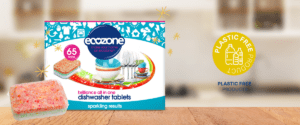
Soluble wrapping
As we move towards reducing our plastic consumption, we made the switch from disposable plastic wrapping to soluble tablet wrapping.
All of our Dishwasher Tablets, Washing Machine and Dishwasher Cleaner Tablets, and now our Oxygen Power Brightening, Power Whitening and new Water Softener Tablets are all wrapped in a water soluble film. That’s a total of 14 products in our range.
Instead of plastic, our tablets are wrapped in a bio-compostable film made from PVA. The PVA (polyvinyl alcohol) is a biodegradable and non-toxic substance that’s soluble in water, breaking down into smaller, harmless components which then eventually decompose into reusable nutrients.
Ecozone’s wrappers are made with materials of great strength as well as with great environmental credentials.
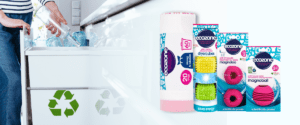
Recycling your Ecozone products
We’re not perfect – but like you, we’re trying our best. Our plastic free range continues to grow, and we make as much of our products from PCR as possible. While also working to source even more sustainable materials for packaging to match up to our sustainable & eco formulas.
Magnoball and Magnoloo
Both our Magnoball and Magnoloo are made from TPE (thermoplastic elastomer), which means they can be recycled. However, to do so you need to separate them from their magnets and dispose of them appropriately, too.
Oxo-Biodegradable Bin Liners
Common bin liners will take hundreds of years to decompose and even once they have, produce a multitude of microplastics that will pollute the environment forever. On the other hand, our bin liners are oxo-biodegradable which means they will break down in less than two years, and don’t release toxins into landfill leachate, or contribute to microplastic pollution.
Dryer Cubes
Our Dryer Cubes are made from PVC with plasticisers that make the material softer and more flexible. Unlike pure PVC, PVC with plasticisers can be recycled. Also unlike other plastics, they can be recycled many times without a decrease in their original quality.
At Ecozone we know the difficulties of trying to live an entirely eco-friendly lifestyle and that consumers also rely on manufacturers to push the boundaries and make it easier for them to do so. We’re conscious of this and that’s why year after year we look for new and alternative ways to increase our eco credentials while ensuring we supply the most needed essentials to keeping your home & workspace a clean, happy and a safe place to live & thrive. We’re also working on some exciting projects, so keep your eyes peeled for the latest details on what we’re doing to improve our products by providing more sustainable options.

